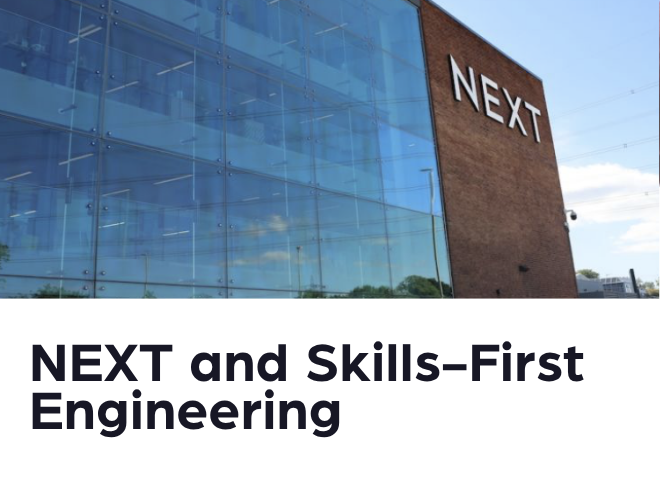Let’s get one thing straight: if you’re leaving the military and heading into the civvy job market, networking isn’t just a “nice to have”. It’s your best weapon.
The armed forces drilled into you the value of teamwork. But when it comes to career transition, you’re going to need to do a bit more solo work. Civvy street doesn’t come with a chain of command or a resettlement plan nailed to your locker. It’s a different battlefield. And networking is how you start winning.
Don’t just take our word for it. Here’s what the intel says:
- 80% of professionals reckon networking is critical to career success (Apollo Technical)
- 70% of jobs are never advertised, they’re filled through connections (Novoresume)
- 85% of roles are landed through networking (Tech Jury)
Still think firing off a few CVs on job boards is going to cut it
Networking isn’t just about finding jobs.
It’s about figuring out what you actually want to do next. You get access to real talk from people already in the industries you’re eyeing up. You learn the unspoken rules. You get leads on actual job opportunities (not the ones that have been live on Indeed since 2019).
And for those just starting to transition from military to civilian life? Networking helps you work out where your military occupational skills fit in. It’s like a live intel briefing, minus the PowerPoint.
Start small. Use what you’ve already got.
You don’t need to cold-message strangers on LinkedIn pretending to be interested in their ‘leadership journey’. Tap into your existing military community first. The armed forces veterans association is one of the most powerful assets you’ve got.
Here’s where to begin:
- Speak to old unit mates who’ve already made the leap
- Join veteran groups on LinkedIn (there are plenty)
- Find communities like Redeployable, built specifically for service leavers
- Attend military events UK geared at resettlement and networking
- Reach out to forces charities and veterans support organisations
And don’t forget the data:
- 84% of people use LinkedIn to grow their professional network (Tech Report)
- 35% say casual chats on LinkedIn have led to job offers (Apollo Technical)
Make LinkedIn your new command post. And don’t just lurk: comment, message, engage. It pays off. Civvies love folks with active LinkedIn accounts - read this article on building a personal brand.
Preparation is key (yes, still).
Before you rock up to a networking event or slide into someone’s DMs, think it through:
- What do you actually want to know from them?
- What’s your military background in plain English?
- How does your experience relate to their line of work?
This is where translating your military skills to civilian terms really matters.
Online networking is efficient, 92% say it saves time and money, but don’t dodge real-life stuff. A whopping 95% of professionals say face-to-face meetings build stronger connections (Apollo Technical). So yes, put on a clean shirt and go to the thing.
Don’t be a networking robot. Be you.
People can smell desperation. Or worse, inauthenticity. If you treat networking like speed dating with your CV, it’s going to fall flat.
Instead, try this:
- Be curious. Ask real questions.
- Share what you’ve done, but in a way they can understand.
- Focus on the value you bring to the table (not just your job title)
You’ve got a story. You’ve had a career. You’ve led teams, solved problems, and probably worked in more high-pressure situations than most hiring managers have seen in a lifetime. That’s your angle.
Help others and follow up. Properly.
This isn’t just a grab-what-you-can exercise. The military community on civvie street is solid. People genuinely want to help. So give something back:
- Offer help or introductions if you can
- Send a follow-up message after events (yes, even just “thanks for the chat” counts)
- Keep in touch and share your wins and learnings
Stats back it up: 61% say staying in touch online helps unlock job opportunities (Apollo Technical). It also keeps you front of mind when roles pop up.
[RESOURCE]
Bottom line?
Networking is part of your mission now.The skills that made you a strong in the armed forces, discipline, clarity, leadership, are the same ones that’ll help you build your new network. And that network? That’s where the good stuff lives: job opportunities, industry insight, and the confidence that you’re not doing this alone.
It’s not always glamorous. It might feel awkward at first. But make it part of your routine, and it’ll pay dividends, especially if you’re eyeing the best careers or specialist jobs in sectors like tech, finance, or engineering.
One last thing, don’t just network with civvies. Speak to other veterans.
They get it. They’ve done the hard yards. They’ve navigated awkward interviews, translated their MOD90 ID card into a CV, and figured out how to explain their rank without sounding like a Bond villain.
Want in?
At Redeployable, we leverage AI to make career resettlement simple, transparent, and tailored to you. Our AI-powered tools help to match you with careers based on more than your rank or role, analyse your skills to highlight civilian job matches you may not have considered and provide step-by-step guidance so your transition isn’t a guessing game.
So why not try it? Click here to start.






.avif)


